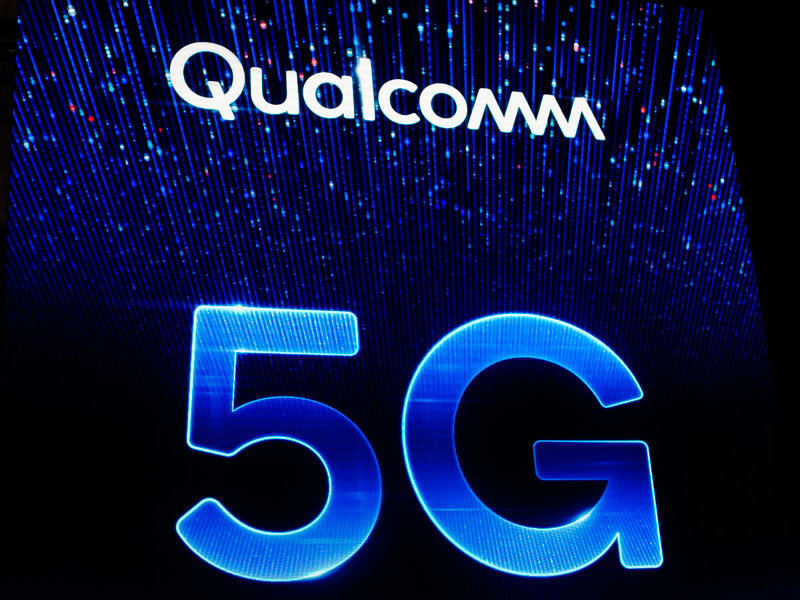Apple and Qualcomm settle long-running dispute
Technology giants Apple and Qualcomm have agreed to settle a legal dispute over the use of Qualcomm’s modem chips in iPhones

The Qualcomm 5G logo exhibited during this year's Mobile World Congress. The company's chips are expected to be used once again in Apple products following the settlement
Tech giants Apple and Qualcomm have reached eleventh-hour settlements on a series on long-running lawsuits with billions of dollars at stake.
Qualcomm’s shares jumped 23 percent following the announcement
The two firms have been at one another’s throats for three years over the way that Qualcomm licenses its technology.
Apple has accused Qualcomm of exploiting patents to maintain a monopoly on modem chips that allow mobile phones to connect to data networks, while Qualcomm has alleged that Apple used its technology without paying for it.
News of the settlement came as the two firms were beginning yet another trial in San Diego’s federal court. The case was set to last around a month, and could have cost either firm billions of dollars.
All litigation worldwide has now been dismissed, according to a joint statement by the two tech giants. The settlement includes an undisclosed payment from Apple to Qualcomm, along with a six-year licensing deal and a multiyear supply agreement. The latter means that Qualcomm chips are likely to be used once again in Apple’s products.
Apple’s iPhone was formerly powered by Qualcomm chips, but due to the dispute, in 2016, the company began to use hardware from rival Intel in some of its models.
Several hours after the settlement was announced, Intel announced that it would be exiting the modem chip business, clearing the path of competition for Qualcomm in supplying hardware to Apple.
The settlement may help Qualcomm to regain the prominent supply position that it held in the early 2010s, before Intel stole much of its market share. It may also help Apple to integrate 5G technology into its iPhone models earlier than expected, as Qualcomm has a 5G modem chip available for shipping now, whereas Intel was not expecting to have the chip ready until next year.
Qualcomm’s shares jumped 23 percent following the announcement, while Apple’s remained flat.













